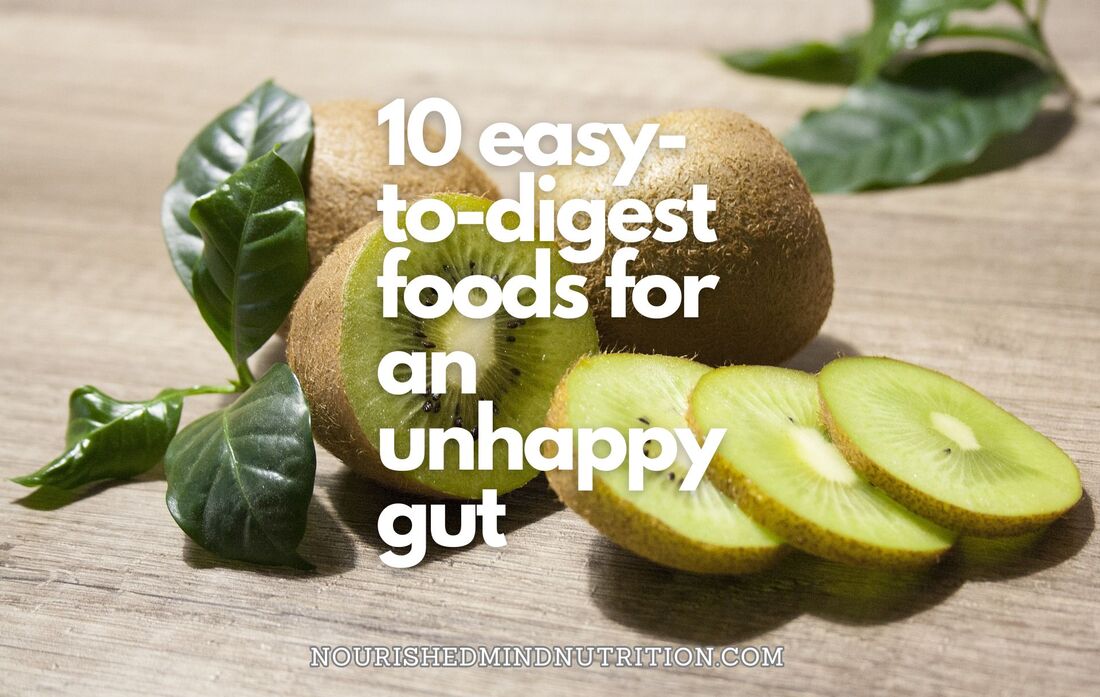|
If you’ve struggled with irritable bowel syndrome (IBS), inflammatory bowel disease (IBD) like Crohn’s disease, ulcerative colitis, or microscopic colitis, or if you just have a sensitive gut and deal with uncomfortable symptoms such as bloating, abdominal pain, diarrhea, or constipation, you have likely noticed at least some connection with food and symptoms. This can cause some people to fear food, which is completely understandable! But as a registered dietitian working with individuals with gastrointestinal issues, I have some really important news for you: your gut needs fuel to work properly. It needs to be fed and nourished regularly, and it also needs breaks between meals and snacks to digest food and move it through. The other encouraging piece of news I want to share with you is that some types of food can actually help to alleviate symptoms, rather than worsen them! Some foods, and some ingredients in food, can be triggers for some people; other foods can be soothing and healing. Whenever possible, I love to talk about what to increase than what to decrease or eliminate, so let’s talk about ten of my personal favorite gentle foods for a sensitive, irritated, or inflamed gut.
Looking for more personalized assistance with your gut symptoms? I’m here to help. Feel free to send me a message or schedule an appointment so we can get to the bottom of your issues and get you feeling better. Erica Golden, RDN, LD, IFNCPRegistered Dietitian Nutritionist with a passion for helping people improve their mental health and gut health using integrative and holistic therapies.
0 Comments
Leave a Reply. |
AuthorErica Golden, RDN Archives
March 2024
Categories |

 RSS Feed
RSS Feed
